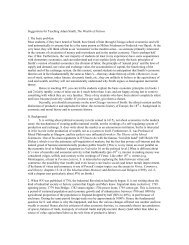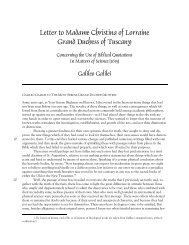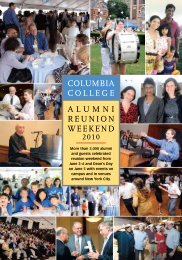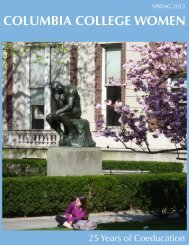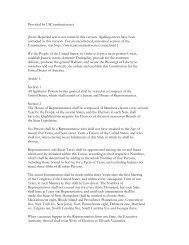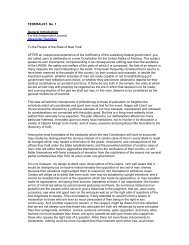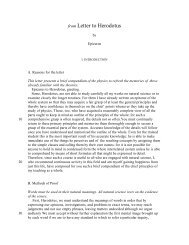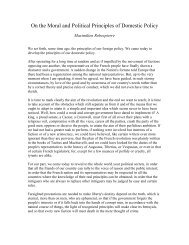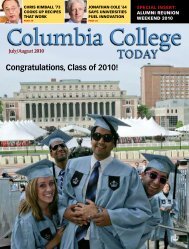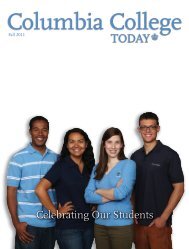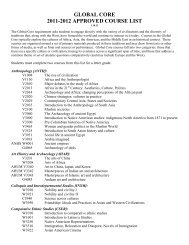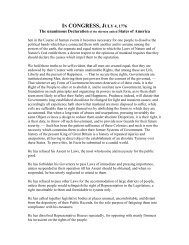Download this issue as a PDF - Columbia College - Columbia ...
Download this issue as a PDF - Columbia College - Columbia ...
Download this issue as a PDF - Columbia College - Columbia ...
You also want an ePaper? Increase the reach of your titles
YUMPU automatically turns print PDFs into web optimized ePapers that Google loves.
CLASS NOTES<br />
COLUMBIA COLLEGE TODAY<br />
COLUMBIA COLLEGE TODAY<br />
CLASS NOTES<br />
Jon Ross ’83 Proves a Little Help Can Go A Long Way<br />
At 51, Jon Ross ’83<br />
h<strong>as</strong> found a way to<br />
channel his boundless<br />
energy for the<br />
greater good. After successful<br />
careers on Wall Street and in<br />
Hollywood, he founded Micro-<br />
Aid International, a nonprofit<br />
for which he travels the globe<br />
building homes, replacing tools<br />
of livelihood and restoring selfsufficiency<br />
for dis<strong>as</strong>ter victims<br />
in far-flung locales.<br />
The mission is simple: to keep<br />
the focus on the victims long<br />
after the world’s attention h<strong>as</strong><br />
moved on. “No other organization<br />
takes <strong>this</strong> long-term, handson<br />
approach to helping people,”<br />
Ross says.<br />
Once the initial rush of aid<br />
and press coverage h<strong>as</strong> faded,<br />
MicroAid (microaidinternational.<br />
org) looks for small projects<br />
with the potential for big impact<br />
in hard-hit towns and villages.<br />
The nonprofit h<strong>as</strong> constructed<br />
homes in Sri Lanka and built<br />
canoes and replaced fishing kits<br />
for villages in Samoa. “MicroAid<br />
Jon Ross ’83 and a felled tree, soon to become one of 16 canoes.<br />
PHOTO: TUILAGI ASA<br />
B y Justin DeFreita s<br />
steps in two to three years later<br />
<strong>as</strong> the NGOs depart for the next<br />
international crisis but without<br />
fully resolving the situation left<br />
behind,” says D. Leslie Winter,<br />
a longtime friend of Ross and a<br />
member of MicroAid’s board of<br />
directors.<br />
Ross’ eclectic journey began<br />
at the <strong>College</strong>, where he studied<br />
an array of subjects en route to<br />
a degree in urban studies. He<br />
credits his curiosity and appreciation<br />
for different cultures to his<br />
study of anthropology. “It combined<br />
so many elements of my<br />
diverse interests and education:<br />
architecture, human interaction,<br />
art, science, religion,” Ross says.<br />
“I bring a lot of that to the work I<br />
do now, and it h<strong>as</strong> informed my<br />
life along the way.”<br />
One of the most enduring<br />
lessons of Ross’ academic career<br />
came outside the cl<strong>as</strong>sroom, at<br />
a cocktail party meet-and-greet<br />
with alumni. “An older alum,<br />
maybe 70 years old, spoke about<br />
his varied career, which included<br />
stints in business and philanthropy<br />
— 10 years here, 15 there,”<br />
Ross says. “It made me realize<br />
that you didn’t have to be locked<br />
into any one thing forever. That<br />
really had an impact on me.”<br />
Upon graduation, Ross accepted<br />
a position at the Wall<br />
Street brokerage firm Paine<br />
Webber, then headed west after<br />
a few years and landed a job<br />
<strong>as</strong> a creative executive at 20th<br />
Century Fox. Dissatisfied with<br />
endless dealmaking that resulted<br />
in few completed projects,<br />
he left in 1989 for New World<br />
Pictures, the small, prolific<br />
studio established by maverick<br />
director Roger Corman. With no<br />
hands-on filmmaking experience,<br />
the one-time major studio<br />
exec began his new career with<br />
that age-old initiation <strong>as</strong>signment:<br />
a coffee run. He spent<br />
the next year learning every job<br />
in the studio, including electrical<br />
work, camera work, set building<br />
and design. It proved to be a<br />
life-altering experience.<br />
“Growing up in New York<br />
and going to <strong>Columbia</strong>, you’re<br />
told that you’re going to rule<br />
the world,” Ross says. “I wish<br />
someone had told me it’s really<br />
helpful to start at the bottom<br />
and learn everything.”<br />
From there, Ross forged a 15-<br />
year career <strong>as</strong> a freelance producer<br />
of television commercials.<br />
Though he w<strong>as</strong> no television fan,<br />
nor had he any love for advertising,<br />
the money and the freedom<br />
to set his own hours enabled<br />
him to pursue interests such <strong>as</strong><br />
world travel and volunteerism.<br />
The latter included his work with<br />
the Southern California chapter<br />
of the Achilles Track Club (now<br />
Achilles International), an organization<br />
for people with disabilities<br />
that he’d established in 1987.<br />
Ross ran the club for 20 years,<br />
guiding blind runners in races<br />
and marathons, training other<br />
guides and handling fundraising,<br />
administration, press and outreach.<br />
He also volunteered for<br />
three years with Habitat for Humanity,<br />
earning certification <strong>as</strong> a<br />
construction crew leader while<br />
building houses for low-income<br />
families in the Los Angeles area.<br />
In 2009, Ross gave up his<br />
television career and combined<br />
his various skills and interests<br />
by founding MicroAid. The<br />
idea stemmed from his travel<br />
experiences <strong>as</strong> well <strong>as</strong> from<br />
a 2008 project for which he<br />
w<strong>as</strong> commissioned by a Wall<br />
Street firm to help distribute<br />
relief funds in Sri Lanka, which<br />
w<strong>as</strong> still suffering in the wake<br />
of the 2004 tsunami. When the<br />
project’s funders backed out,<br />
Ross made sure his time and<br />
research would not go to w<strong>as</strong>te,<br />
going solo and raising money to<br />
build houses on the island. Thus<br />
MicroAid w<strong>as</strong> born.<br />
Though Ross h<strong>as</strong> since added<br />
a board of directors, MicroAid<br />
remains largely a one-man operation.<br />
After conferring with village<br />
elders and religious leaders, <strong>as</strong><br />
well <strong>as</strong> local nonprofits and the<br />
departing NGOs, Ross — along<br />
with his board — starts raising<br />
funds. Then, acting <strong>as</strong> project<br />
manager, he makes a first visit to<br />
the area to coordinate with local<br />
Two villagers paddle new MicroAid canoes across Lefaga Bay.<br />
PHOTO: JON ROSS ’83<br />
organizations and international<br />
NGOs. Once funding is in place,<br />
Ross returns to the site, buying<br />
local materials and hiring locally<br />
to complete the project at minimal<br />
expense.<br />
Most recently Ross helped the<br />
roughly 260 people of Matafa’a,<br />
a remote village on Lefaga Bay<br />
on the southern co<strong>as</strong>t of Samoa,<br />
to replace canoes destroyed in<br />
the 2009 tsunami. The loss had<br />
been crippling, <strong>as</strong> canoes are<br />
necessary for families to cross<br />
the bay to attend school, to shop<br />
and to catch the bus for the<br />
90-minute commute to jobs in<br />
the capital of Apia. In ordinary<br />
times, villagers would need to<br />
build only a single canoe every<br />
few years and, because of the<br />
rarity of the occ<strong>as</strong>ion, the skills<br />
were not necessarily p<strong>as</strong>sed<br />
down to the next generation. But<br />
after Ross arrived and secured<br />
the materials, he and the villagers<br />
set up a makeshift factory, building<br />
16 canoes in six weeks. The<br />
elders also used the opportunity<br />
to teach the craft to the younger<br />
generation, several of whom<br />
used their newfound knowledge<br />
to get jobs building canoes in<br />
other villages.<br />
MicroAid, which is b<strong>as</strong>ed in<br />
Ross’ adopted hometown of<br />
Venice Beach, Calif., currently<br />
raises $30,000–$50,000 per project.<br />
The next venture, scheduled<br />
for <strong>this</strong> spring, is in Peru, with<br />
projects planned for Burma,<br />
Haiti and Nicaragua.<br />
“The five-year plan is to train<br />
three other project managers<br />
so that we can have multiple<br />
programs operating at the<br />
same time, and to raise at le<strong>as</strong>t<br />
$250,000 annually. And, I hope,<br />
to inspire people to help those<br />
in need,” Ross says.<br />
Every dollar donated to Micro-<br />
Aid goes to programs; the overhead<br />
is funded by the board and<br />
by Ross, who doesn’t take a salary.<br />
He funds his own part with<br />
savings from his careers and<br />
from the proceeds of a small<br />
business he founded in 2003:<br />
Soothe Your Soles (soothe<br />
yoursoles.net), cleansing towels<br />
for feet that Ross created and<br />
markets to yoga studios, sp<strong>as</strong><br />
and resort hotels. “It pays for my<br />
nonprofit habit,” he says.<br />
“Jon is an enthusi<strong>as</strong>tic,<br />
thoughtful person with a methodical<br />
approach to problemsolving,”<br />
Winter says. “He h<strong>as</strong><br />
never sought personal financial<br />
gain; he seeks to <strong>as</strong>sist others.<br />
He h<strong>as</strong> foregone lucrative opportunities<br />
to do the work that<br />
gives him greater satisfaction.”<br />
MicroAid’s name derives<br />
not only from the size of the<br />
projects it focuses on but also<br />
from the fact that it takes relatively<br />
little money to complete<br />
them. For example, Ross says,<br />
it only costs about $7,000 to<br />
build a house in Sri Lanka.<br />
“A small amount of money<br />
and a small amount of help<br />
can do a lot of good,” he says.<br />
“Just because I can’t build a<br />
hundred houses doesn’t mean<br />
I shouldn’t build one.”<br />
Justin DeFreit<strong>as</strong> is a Bay Area<br />
writer and graphic artist.<br />
Jim Weinstein ’84: “Karl-Ludwig<br />
Selig w<strong>as</strong> a unique man. He w<strong>as</strong><br />
not just a scholar but also a teacher<br />
and an adviser. In the days before<br />
coeducation, the Dean of Students<br />
Office on the 200 level of Hamilton<br />
w<strong>as</strong> smaller, and it w<strong>as</strong> adjacent to<br />
his office. The line to see the professor<br />
w<strong>as</strong> often longer than the line to<br />
see the dean or any of his <strong>as</strong>sistants!<br />
He took a tremendous interest in<br />
his students and, in his retirement,<br />
always would talk about which ones<br />
became doctors, professors, lawyers<br />
and other professionals. He had an<br />
amazing memory for names, places,<br />
dates, articles and scholarly research.<br />
“His story from his years before<br />
<strong>Columbia</strong> is even deeper than his<br />
academic career: <strong>as</strong> a boy and a<br />
teenager, he w<strong>as</strong> raised in a middle<br />
cl<strong>as</strong>s family in Germany, but with<br />
the rise of Hitler, his family wisely<br />
decided to leave. He and his family<br />
were some of the l<strong>as</strong>t Jews to<br />
escape, [traveling] to the United<br />
Kingdom and then on one of the<br />
l<strong>as</strong>t boats from there to the United<br />
States. His family settled in Erie, Pa.,<br />
and he excelled in high school and<br />
got an undergraduate degree from<br />
Ohio State. [Professor Selig] had<br />
tremendous energy and worked<br />
80-hour weeks, or so it seemed. He<br />
also had great empathy for studentathletes,<br />
perhaps because he w<strong>as</strong><br />
on the swim team at Ohio State<br />
and understood the academic and<br />
athletic burdens of student-athletes.<br />
I also recall that he did graduate<br />
work at Tex<strong>as</strong> and could reminisce<br />
about what Tex<strong>as</strong> w<strong>as</strong> like in the<br />
1960s <strong>as</strong> well <strong>as</strong> being on trains<br />
from St. Louis to Austin, including<br />
every stop in between.”<br />
[Editor’s note: See obituary in<br />
Around the Quads.]<br />
Andy Gershon and his wife,<br />
Gail, hosted a well-attended ’83<br />
reception at their home on December<br />
1. Their son, Alex, is a talented<br />
left-handed pitcher who spent<br />
much of the evening showing<br />
my son, David, different b<strong>as</strong>eball<br />
pitching grips. Andy runs the Safe<br />
Haven JV league for which Alex<br />
is a tournament-winning pitcher.<br />
Alex’s sister, Sophie, plays b<strong>as</strong>ketball<br />
and her team is ranked 10th<br />
in the country. I spoke with Kevin<br />
Chapman and his son, Ross; Eric<br />
Wertzer; David Einhorn ’86L; Eric<br />
Epstein; Ed Joyce; Steven Greenfield;<br />
and David Hershey-Webb<br />
at the event. David regularly performs<br />
his guitar songs at the Living<br />
Room in Manhattan. Many of us<br />
attended the <strong>Columbia</strong>-Bucknell<br />
b<strong>as</strong>ketball game after the event.<br />
I really enjoyed hearing from<br />
CC b<strong>as</strong>eball great Frank Antonelli.<br />
Frank is president of Empire Sports<br />
Management. He h<strong>as</strong> been involved<br />
with directing major golf events<br />
including the Ryder Cup, Memorial<br />
Tournament, U.S. Open, and Hootie<br />
and the Blowfish Monday After<br />
the M<strong>as</strong>ters Celebrity Pro-Am.<br />
Frank’s company also represents<br />
international golf clients including<br />
Tommy “Two Gloves” Gainey and<br />
the Golf Channel’s Charlie Rymer.<br />
He earned a m<strong>as</strong>ter’s in sports administration<br />
from Ohio and worked<br />
for years with Jack Nicklaus. Frank<br />
lives in a beachfront community in<br />
Charleston with his wife, Debbie<br />
(a former NC State b<strong>as</strong>ketball star),<br />
who announces college and WNBA<br />
games for ESPN, CBS and FOX<br />
Sports Net. He h<strong>as</strong> three children,<br />
Joey (17), who competes in AAU<br />
b<strong>as</strong>ketball; Frankie (15), who<br />
competes in the Special Olympics;<br />
and Patrick (11). Frank h<strong>as</strong> set up a<br />
charity on Frankie’s behalf, Frankie<br />
and Friends, to raise awareness<br />
about special needs children. Antibullying<br />
is another of the charity’s<br />
themes. Frankie is scheduled to<br />
speak at St. John’s University on<br />
April 22 to promote the charity. He<br />
regularly speaks in front of thousands<br />
of people. Patrick is involved<br />
with travel soccer and b<strong>as</strong>ketball.<br />
Frank keeps in touch with Kurt<br />
Lundgren (former CC b<strong>as</strong>eball<br />
pitcher and New York Mets prospect),<br />
a lawyer living in Nanuet,<br />
N.Y., and with John McGivney, who<br />
works for the IRS on Long Island.<br />
Other CC friends include Frank Lof<strong>as</strong>o<br />
’83E, Beemie Bajraktari ’92, Bob<br />
Flock, Glenn Meyers ’84 and Mike<br />
Dichiaro ’84, all of whom regularly<br />
attend Glenn’s annual charity golf<br />
tournament in New City.<br />
Gary McCready writes, “Our<br />
1983 Facebook reunion page can be<br />
found at facebook.com/<strong>Columbia</strong><br />
1983. It is very b<strong>as</strong>ic, so ple<strong>as</strong>e<br />
forward recommendations to me to<br />
spice it up (or to correct typos). Additional<br />
admins are welcome; just<br />
email me. Ple<strong>as</strong>e ‘like’ it and p<strong>as</strong>s it<br />
on to all you know in ’83 in the <strong>College</strong>,<br />
Barnard and Engineering.”<br />
While we’re on the subject of<br />
reunion, make a note that the dates<br />
are Thursday, May 30 –Sunday,<br />
June 2. Look for information at<br />
reunion.college.columbia.edu. And<br />
to be sure that you receive all the<br />
updates from the Alumni Office,<br />
update your contact information<br />
at reunion.college.columbia.edu/<br />
alumniupdate.<br />
I attended the 2012 Alexander<br />
Hamilton Award Dinner, honoring<br />
Jonathan D. Schiller ’69, ’73L,<br />
managing partner of Boies, Schiller<br />
& Flexner, in November. David<br />
Boies w<strong>as</strong> seated at the table next to<br />
me. I now know how my son feels<br />
when he spots David Wright at a<br />
NYC restaurant.<br />
Jon Ross, founder of MicroAid<br />
International (see Alumni Profile in<br />
<strong>this</strong> <strong>issue</strong>) writes, “With so much<br />
tragedy in the news [<strong>as</strong> 2012 came<br />
to a close], you may not have seen<br />
that a category 3 cyclone (sustained<br />
SPRING 2013<br />
80<br />
SPRING 2013<br />
81



